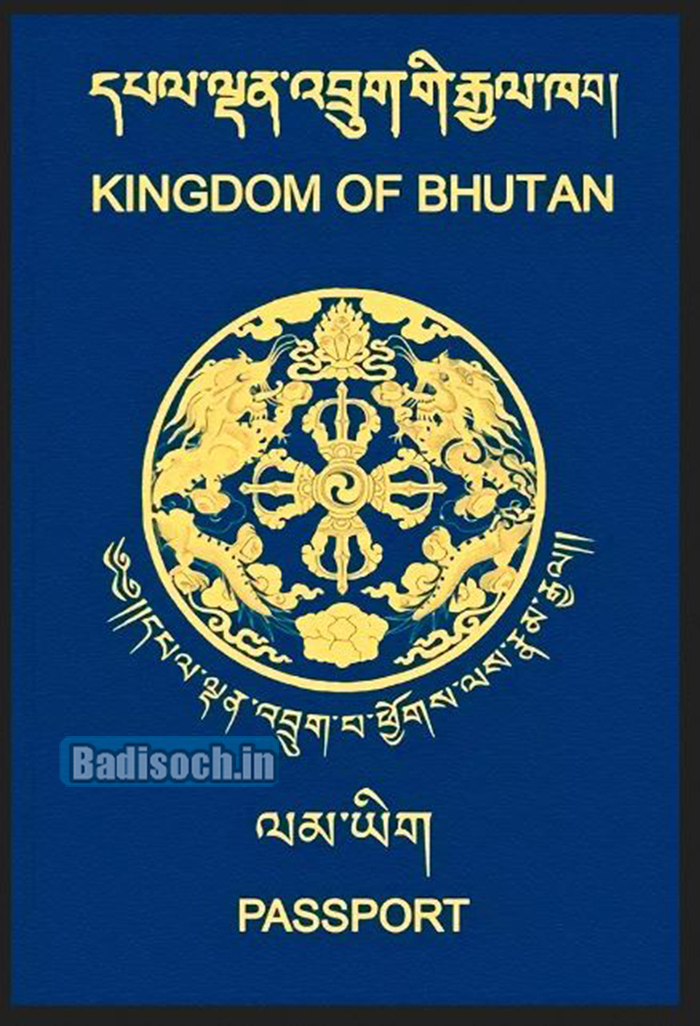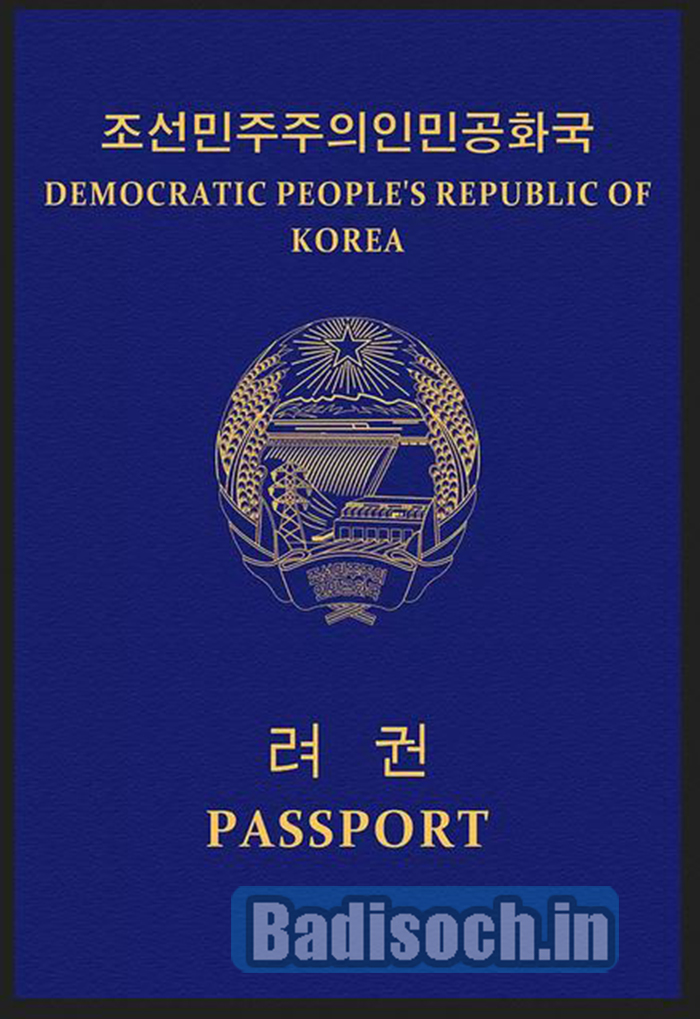10 Hardest Countries to Get Citizenship:- The citizenship process might a difficult obstacle today. When many people dream of leaving their current country and beginning a new one. Different nations have various criteria, deadlines, and requirements for obtaining citizenship, and some of them make the process purposefully challenging. Nevertheless, Jagran Josh calls attention to many nations where getting citizenship is the most challenging, notwithstanding the diversity of the world’s legal systems.
The process of obtaining citizenship can be complex and challenging in certain countries. Among the hardest countries to get citizenship are those that have strict requirements, lengthy residency periods, and limited opportunities for naturalization. For example, Switzerland is known for its rigorous naturalization process, which includes a lengthy residency requirement of 12 years, language proficiency tests, and a thorough examination of an applicant’s integration into Swiss society. Similarly, Saudi Arabia has stringent criteria for granting citizenship, with a requirement of at least 10 years of continuous residence and sponsorship by a Saudi national.
10 Hardest Countries to Get Citizenship
As a result, becoming a citizen, particularly through naturalisation, can challenging in many different nations. It can difficult to become a citizen in many countries, especially through naturalisation. Acquiring citizenship can become difficult and time-consuming due to a number of circumstances.It is important to note that the order in which these nations are listed is arbitrary, and that the list is based on a number of reports and references from authoritative online sources.
Other countries with difficult citizenship processes include Japan, which has strict requirements for naturalization including language proficiency and renunciation of previous citizenships, and Austria, which requires applicants to demonstrate strong ties to the country and pass an Austrian history exam. While these countries may present challenges for those seeking citizenship, the rewards of obtaining citizenship in these nations can be significant, offering individuals access to various rights and opportunities.
10 Hardest Countries to Get Citizenship Overview
| Artical Name | 10 Hardest Countries to Get Citizenship |
| Know More | Click here |
 |
|
| Telegram | |
| Category | News |
See Also: co vaccine registration
10 Hardest Countries To Get Citizenship
The list is based on a number of studies and references from government websites that are accessible online. In 2024, these are the ten nations where obtaining citizenship will most difficult.
- Qatar
- Vatican City
- Liechtenstein
- Bhutan
- Saudi Arabia
- Kuwait
- Switzerland
- China
- North Korea
- Japan
Qatar
Qatar, located in the Persian Gulf and known for its great wealth fueled by the natural gas sector, is notorious for the strict conditions for getting citizenship. Qatar’s citizenship requirements, including a continuous residency period of 25 years, proficiency in Arabic. A clean conduct record, and proof of adequate financial resources, are indeed stringent. These requirements underscore Qatar’s commitment to maintaining its cultural and social identity while ensuring that individuals seeking citizenship have strong ties to the country and are well-prepared to contribute to its society.
Furthermore, According to the regulations in Qatar, they do not enable dual nationality, mandating the renunciation of one’s initial passport. The requirement for likely conversion to Islam is an additional criterion that significantly contributes to Qatar’s reputation as one of the most challenging countries in the world to acquire citizenship. This requirement aligns with Qatar’s status as an Islamic nation and underscores the importance of religious and cultural compatibility for prospective citizens.
The combination of a lengthy residency period, language proficiency, a clean conduct record, proof of financial resources, and the expectation of likely conversion to Islam creates a rigorous and selective citizenship process in Qatar. It reflects the country’s commitment to preserving its cultural, religious, and social identity while ensuring that individuals seeking citizenship have a deep connection to Qatar and its values.
Check Also: Happy Friendship Day Quotes
Vatican City
Indeed, Vatican City, as the world’s smallest sovereign state, maintains stringent and highly specialized citizenship rules. With a population of around 450 citizens, it is one of the most exclusive and challenging places to acquire citizenship globally. The limited eligibility criteria, which include being a cardinal residing in Vatican City or Rome, serving as a diplomat representing the Holy See, or being employed within the Catholic Church in Vatican City, reflect the unique nature and purpose of this city-state.
Vatican City’s focus on maintaining a small, specialized population aligns with its role as the spiritual and administrative center of the Roman Catholic Church. These strict citizenship rules are designed to preserve the religious and administrative functions of the state while ensuring that citizenship is granted only to those individuals who have specific roles and responsibilities within the Catholic Church and its operations.
Liechtenstein
Liechtenstein’s citizenship requirements, as described, do indeed present a challenging path to naturalization for foreigners. The extended residency period of at least 30 years, which can be reduced to 10 years with community approval or marriage, reflects the microstate’s commitment to preserving its cultural and social cohesion.
Marrying a Liechtenstein citizen and obtaining citizenship after just five years is a more accelerated route but still comes with its own set of requirements. These demanding conditions are in place to ensure that individuals seeking citizenship have strong ties to the local community and are committed to contributing to Liechtenstein’s society.
While Liechtenstein’s citizenship process may challenging, it aligns with the nation’s goal of maintaining its unique identity and culture. As with any country, individuals considering Liechtenstein as a potential new home should carefully review the specific criteria and regulations associated with obtaining citizenship to determine if it aligns with their long-term goals and commitments.
Read this: Ahasolar Technologies IPO Allotment Status
Bhutan
Bhutan’s citizenship requirements, as outlined, are indeed among the most stringent globally. Reflecting the country’s commitment to preserving its unique culture, traditions, and monarchy. The residency requirement of a minimum of 20 years for foreigners seeking Bhutanese citizenship is substantial. Moreover, the expectation of impeccable behavior during this period. Including refraining from negative remarks about the Bhutanese monarchy, underscores the country’s desire to protect its heritage and values.
Bhutanese authorities’ discretion to reject citizenship applications without providing reasons and the potential for citizenship revocation in cases of unfavorable remarks about the king or the country in the future further highlight the stringent nature of Bhutan’s citizenship process.
These measures are in place to ensure that individuals who become Bhutanese citizens are deeply committed to the country’s culture and values. It’s important for anyone considering Bhutanese citizenship to aware of these strict requirements and to respect and adhere to the nation’s cultural and legal norms throughout their residency in Bhutan.
Click here: ORIANA POWER IPO GMP TODAY 2024
Saudi Arabia
Saudi Arabia’s citizenship requirements, as described, reflect the nation’s desire to maintain a particular cultural and social identity while safeguarding its national security and stability. The prerequisites for obtaining Saudi Arabian citizenship, including a 10-year residency requirement, fluency in the Arabic language, a clean criminal record, and a subjective assessment of being “generally regarded moral,” show the nation’s emphasis on making sure that potential citizens are assimilated into Saudi society and uphold its cultural values.
The discretionary power of the Minister of the Interior in making final decisions regarding citizenship applications underscores the rigorous and selective nature of the process. Saudi Arabia’s stance on not recognizing dual citizenship. Which necessitates the renunciation of one’s original passport, is in line with its policy of loyalty to the country and commitment to its culture.
These conditions make obtaining Saudi Arabian citizenship a complex and challenging endeavor, emphasizing the importance of understanding and respecting the country’s cultural and legal norms for those considering such a path.
Must Read: SSLV-D1/EOS-02 Launch Date
Kuwait
Kuwait’s citizenship requirements, similar to those of neighboring Saudi Arabia, reflect the nation’s commitment to preserving its cultural and social identity while safeguarding its national security and stability. The Kuwaiti National Law of 1959 establishes the eligibility criteria for naturalization, which include:
- A minimum residency period of 20 years.
- Fluency in the Arabic language.
- Adherence to the Islamic faith either by birth or conversion.
These conditions demonstrate Kuwait’s emphasis on ensuring that prospective citizens are deeply integrated into Kuwaiti society. Uphold the nation’s cultural values, and have a strong commitment to its culture and heritage.
Like many Gulf states, Kuwait’s policy of not recognizing dual citizenship reinforces its commitment to loyalty to the country. This stance contributes to Kuwait’s reputation as one of the most challenging countries globally to obtain citizenship. Prospective applicants for Kuwaiti citizenship should be aware of and respect the country’s cultural and legal norms and understand the complexities associated with the naturalization process.
watch this: Computer Training Center
Switzerland
Switzerland’s citizenship process, as described, is known for its rigor and complexity, and it reflects the country’s commitment to maintaining its unique cultural and linguistic diversity while ensuring that prospective citizens are well-integrated into Swiss society.
The key requirements for foreign individuals aspiring to become Swiss citizens include:
- A minimum residency period of 10 years in the country.
- Holding a ‘C residence permit.’
- Proficiency in one of Switzerland’s national languages (German, French, Italian, or Romansh).
Switzerland’s citizenship process involves multiple approval stages at the federal, cantonal, and communal levels. Each with its own set of criteria and requirements. This multi-tiered process is designed to ensure that individuals seeking citizenship meet not only national but also regional and local integration standards.
The commitment to these rigorous criteria contributes to Switzerland’s reputation as one of the world’s most challenging countries to obtain citizenship. Prospective applicants should carefully review and understand the specific requirements and regulations associated with Swiss naturalization to navigate the process successfully.
Click here: School Assembly News Headlines Today 2024
China
China’s citizenship process is indeed known for its complexity and stringent requirements. Which reflect the country’s commitment to maintaining its national identity and security. The Chinese nationality law, as you mentioned. Provides limited avenues for foreigners to acquire citizenship, primarily through family ties or “other legitimate reasons.” The intentionally vague nature of the law can make the process challenging to navigate, and there is no specific duration of residency stipulated in the law.
China’s complex citizenship requirements can deter many foreigners from pursuing Chinese citizenship. The emphasis on family ties and other legitimate reasons underscores the nation’s focus on ensuring that individuals seeking citizenship have strong connections to the country and meet specific criteria that align with its cultural and national values. It’s important for individuals considering Chinese citizenship to understand and respect the country’s legal and cultural norms and to prepared for a complex and potentially lengthy naturalization process.
North Korea
North Korea’s citizenship process is indeed shrouded in secrecy and is one of the most enigmatic in the world. The isolationist nature of the country, often referred to as the Hermit Kingdom. Contributes to the limited information available about its citizenship criteria and requirements. As you mentioned, it’s believed that the Presidium of the Supreme People’s Assembly is responsible for granting North Korean citizenship. The lack of documentation and transparency regarding the specific criteria and process for obtaining citizenship in North Korea makes it exceptionally challenging for individuals to navigate.
Additionally, North Korea’s policy of not recognizing dual citizenship further reinforces its commitment to maintaining control over its citizens and limiting external influences. This policy, combined with the secrecy surrounding its citizenship process. Makes North Korea one of the most challenging countries in the world to obtain citizenship. It’s essential to note that North Korea’s isolationist policies and lack of transparency extend to various aspects of life within the country, including its citizenship process. Making it a unique and highly restrictive environment for those seeking citizenship.
See Also: Chandrayaan 3 Successfully Land on the Moon
Japan
Japan’s citizenship process, as described. Reflects the nation’s commitment to maintaining its cultural and social cohesion while ensuring that prospective citizens are well-integrated into Japanese society and uphold the country’s values and laws.
Key requirements for foreign individuals seeking naturalization in Japan include:
- A minimum continuous residency period of five years.
- Demonstrating “upright conduct.”
- The ability to support oneself in Japan.
- Not participating in organizations advocating the overthrow of the Japanese government.
While Japan does not recognize dual citizenship. It has a comparatively lenient language requirement. Which only necessitates basic proficiency suitable for daily life.
These stringent criteria establish Japan as one of the world’s most challenging countries to acquire citizenship. And prospective applicants should prepared to meet these requirements while also respecting Japan’s cultural and legal norms. Understanding the complexities of the naturalization process and demonstrating a strong commitment to Japan’s society and values are essential for those considering Japanese citizenship.
Conclusion
The process of obtaining citizenship can be complex and challenging in some countries. There are several factors that contribute to the difficulty of attaining citizenship, including strict immigration policies, lengthy residency requirements, and stringent language or cultural integration tests. Some of the hardest countries to get citizenship include Switzerland, where applicants must live in the country for at least 12 years before becoming eligible; Japan, which requires a minimum of 10 years of continuous residency; and Saudi Arabia, where citizenship is typically only granted to individuals with Saudi Arabian ancestry. These countries place a high value on preserving their culture and national identity, making the path to citizenship more arduous.
Hardest Countries to Get Citizenship FAQ’S
Is it hard to get Indian citizenship?
The duration of stay required before applying for Indian Citizenship depends on the individual's circumstances. If you are a Person of Indian Origin, you must live in India for 7 years before being eligible to apply. Similarly, if an individual is married to an Indian Citizen and wishes to obtain Indian Citizenship, they also need to have lived in India for 7 years before they can apply.
What's the hardest country to get into?
North Korea is undoubtedly the most challenging nation to obtain a tourist visa for. In order to secure a visa, individuals must go through a tourist agency that offers state-approved tours in North Korea.
Which country gives citizenship easily?
The easiest countries to get citizenship are those that allow for citizenship by investment such as St. Kitts and Nevis, Vanuatu, Turkey, and Malta. The easiest countries to get citizenship allow you to obtain your passport between 2 to 8 months on average by making a qualified investment.
Related Post:-










